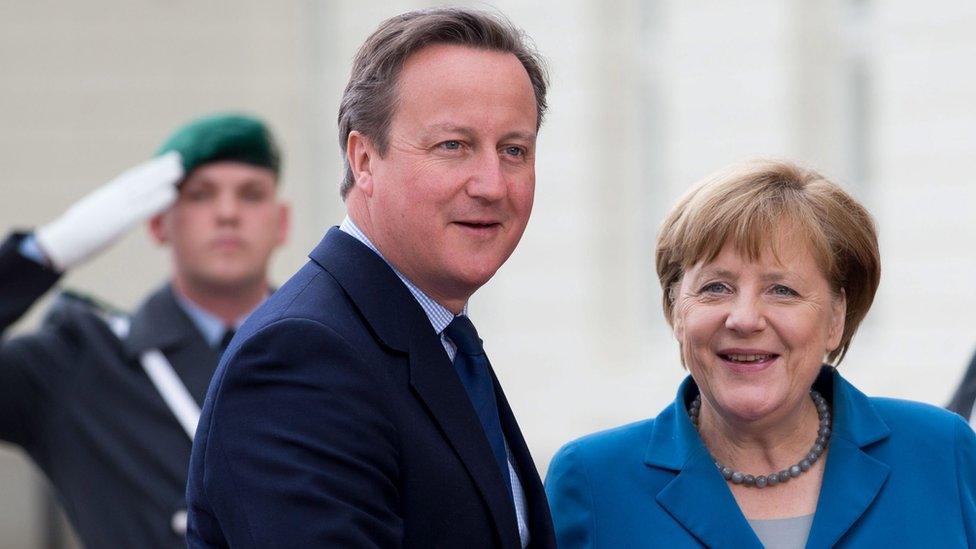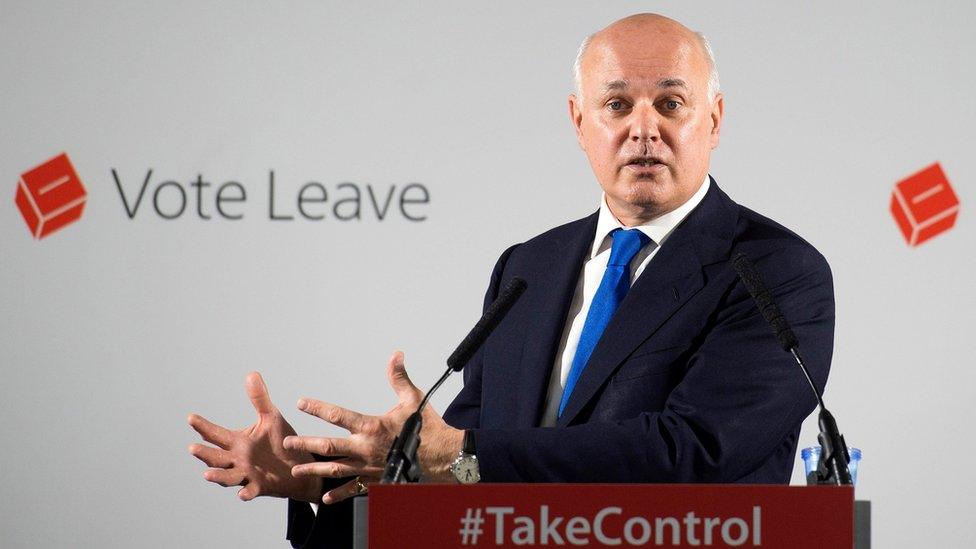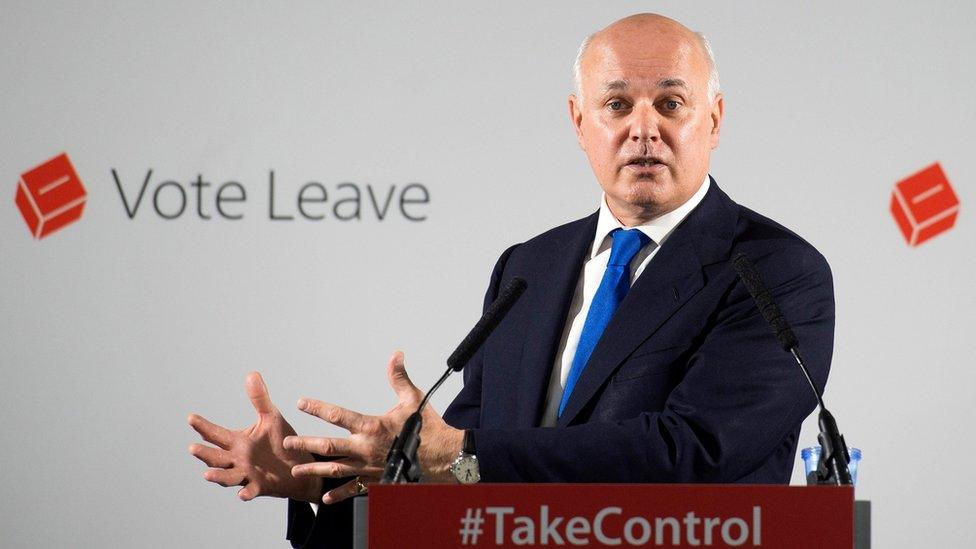Did Cameron really bow to a German veto?
- Published

Approval from Chancellor Merkel was key to Mr Cameron's UK "special status" deal with the EU
In the lead-up to elections, mud-slinging, as well as speech-giving and hand-shaking, is viewed by many politicians as an extremely effective campaign tool.
Some are of the opinion that getting the mud to stick is, in the end, more important than the 100% accuracy of their argument.
Here in the UK, damp clods of earth are beginning to be hurled - by both the Remain and the Leave camps - as the political temperature rises ahead of the 23 June referendum on EU membership.
The former Work and Pensions Secretary, Iain Duncan Smith, a key political figure campaigning for the UK to exit the EU, grabbed the headlines on Tuesday with his claim to The Sun newspaper, external that Germany was secretly in control of David Cameron's EU renegotiation throughout.
And that Chancellor Angela Merkel demanded the prime minister drop a key demand to block EU immigration.
The Sun says that according to Mr Duncan Smith, the "drama between the two capitals took place just before Mr Cameron delivered a key speech to set out what he would demand from the EU as Britain's price for remaining in it on November 27, 2014."

Mr Duncan Smith suggests Mr Cameron was overruled by German concerns
Core EU principle
In fact, news of Angela Merkel's opposition can't have come as a great surprise then to Mr Cameron or the British public, as one month earlier, another UK newspaper The Sunday Times quoted Mrs Merkel as saying, external she would not support Mr Cameron's plans to impose a quota on EU migrants.
The German chancellor has always been very open in her defence of freedom of movement in the EU. This goes for British nationals wanting to work in Paris, as it does for Poles getting a job in Leicester.
Because of its World War Two past, Germany is particularly sensitive about being "a good European". It wants to be seen as defending EU rules.
But Iain Duncan Smith also knows that - because of the UK's WW2 history - British voters might well react with resentment and anger at the thought of Germany, of all EU countries, telling the UK what to do.
In fact, numerous other EU countries and the European Commission (the stated guardian of EU law) repeatedly insisted to David Cameron that the freedom of movement for EU citizens to live and work in any EU country was non-negotiable, as it is one of the core principles of the bloc.
This highlights another argument by Leave campaigners like Iain Duncan Smith, that by being part of the EU, Britain has given up its decision-making powers to outsiders "in Europe".
UK open doors
In the end, the concession Mr Cameron won from his EU partners this February was that the UK can impose benefit restrictions on new EU migrant workers for a period of time.
This was dismissed as a laughable, meaningless and an empty victory by critics at home.
EU deal: Did PM get what he wanted?
Continental critics muse that the UK brought the initial mass influx of EU migrants on itself when, back in 2004, the Blair Labour government refused to implement the seven-year moratorium agreed by the EU on migrant workers from new EU member states of the former communist bloc.

Buses brought huge numbers of Polish workers to the UK from 2004 onwards
Germany made full use of the moratorium and kept its doors shut to Eastern European EU countries until May 2011.
Hundreds of thousands of Poles and others came to work in Britain's booming economy.
Tony Blair has admitted his government underestimated the numbers of people who would queue up to come to the UK, but he insists they have made a valuable contribution to Britain and its finances.
- Published10 May 2016

- Published18 April 2016

- Published20 February 2016
